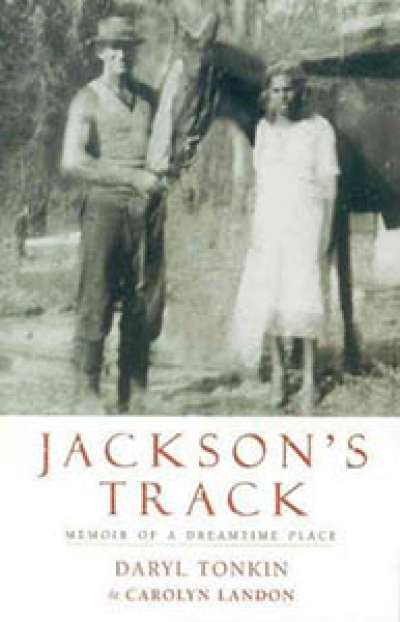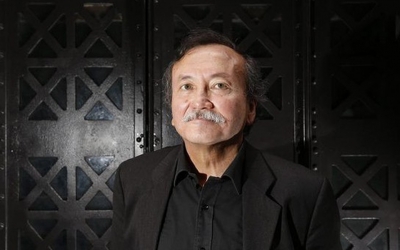Rolling Column
Jackson's Track: Memoir of a Dreamtime place by Daryl Tonkin and Carolyn Landon
The Australian literary scene has always been more depressing that it is lively, especially when critics and writers are quick to display their battle scars in public places where oftentimes the debate hardly rises above fawning or fighting. The walking wounded are encouraged to endure. This is about the only encouragement extant. I remember the Simpson episode, not O.J. but Bart, who arrived in Australia for a kick up the bum. Perhaps the emulation of Britain has reached such an unconscious proportion that no ground can be explored beyond the grid bounded by Grub Street and Fleet Street, where youngsters need to be caned for reasons more prurient than wise, and where small ponds become the breeding pools for goldfish pretending to be piranhas dishing up more of the same stew. Thus, British writing, apart from its internationalists, hath come to this sad pass. Or where, given the brashness of being itself a young nation unused to finesse, Australia’s grand ideals end up as populist opinion – a talkback republic of letters irrelevant to its real enemies.
... (read more)‘Those who can, do; those who can’t, teach.’
Can I begin like that? It’s risky, and contentious, and will probably come back at me. But it’s no less a stupid comment for all that. In my experience it is usually the ones who say it who are the ones who can’t.
... (read more)Have you noticed what’s happened to the daiquiri? It’s been reinvented, by the Teen Literati. Now it doesn’t seem fair to blame the Industrial Revolution for what happened to the daiquiri, or to Writing in Australia in the 1990s, but the Industrial Revolution started it – you know, the steam engine, World Wars, radiation poisoning, filter-tipped cigarettes, Mickey Mouse, germ-free hamburgers, and air travel holidays for the working family. And the Industrial Revolution was kick-started by the bourgeoisie. That’s right: you people, the middle class.
... (read more)I don’t make a point of skiving off to every literary festival in the country but, once in a blue moon, comes an invitation that’s hard to refuse (commerce enters into it, yet I want the heady feeling of selling a book, too). So I went to the third, and probably last, Hawthorn Writers’ Week in March. Why ‘probably last’? Read on.
... (read more)Western society’s thirst for ease and comfort is insatiable. Every innovation which minimises effort is leapt upon, not always with respect for social and environmental costs. Cars are automatically-geared, air-conditioned, full of devices to save even the effort of winding windows. Unaware of the strain such comforts may cause on natural resources (unless we exert ourselves to find out), we expend scarcely any personal effort on traversing huge distances, where our ancestors who had to walk knew exactly how much energy their travel needed. Living in comfortable homes where clean water is a tap’s turn away, we need give no thought to what sustains the supply, where our forebears knew precisely how much effort was needed to get water (and therefore used it more carefully). Even in pursuit of pleasure we welcome less effort. We love the technology which brings the sound of huge orchestras into our living rooms. We expect to see all kinds of cultural display at the touch of a remote control.
... (read more)Rudyard Kipling could not understand why his cheque account was so much in credit. The answer was that the tradespeople in his village were selling his signature to autograph collectors for more than they would have received by presenting Kipling’s cheques to the bank.
... (read more)Although the policy of the Australian Book Review is to review only Australian books, every now and then a publisher sends us a book which is so important or so relevant to issues of current concern that it cannot be ignored. Recent debate in Australian newspapers makes The Holocaust in Historical Perspective, by Yehuda Bauer (published in Australia by ANU Press), such a book.
The book consists of four lectures originally delivered in Seattle, and concerned with the question of why the Holocaust is the central experience of our civilisation, and of how it was allowed to occur.
... (read more)

